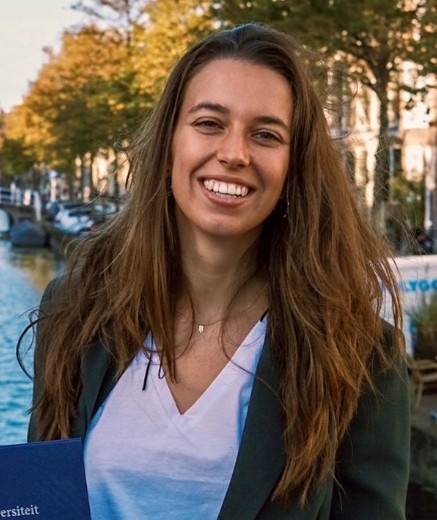Interview with Cleo Demeester (ESR 11)
What has your research project focused on?
By incorporating the physiological changes affecting absorption in older adults, this research aims to describe absorption within the pharmacokinetics with PBPK modelling in the older population. Ultimately, this could help dose informing and personalised medicine for the aging population.
What are the key results and innovations coming from your research project? How will they impact the future of drug absorption in geriatric patients and older people?

By developing a novel database including age-related information of haematocrit, plasma proteins, cytochrome P450 (CYP) 3A4 ontogeny, and gastrointestinal (GI) fluid volumes, new PBPK models were created for the older population.
How did the AGePOP network impact your PhD experience?
Being part of a consortium enhanced my PhD experience, offering a valuable network, helpful events, and collaborative opportunities that supported my research and growth. Working in an environment that combines industry and academia gave me important insights and a well-rounded perspective that benefited my work.
How was your MSCA ITN training different to local PhD programmes? Which training was particularly useful for you?
Being part of an MSCA ITN was unique compared to local PhD programs because it allowed me to see 10 other PhD students develop their projects, offering valuable opportunities to learn from each other on an international scale. Regularly coming together a couple of times per year was particularly useful, as it fostered collaboration, idea-sharing, and personal connections that greatly enriched my training experience.
What are your plans for the future?
For the future, I plan to continue working in the pharmaceutical industry, focusing on pharmacometrics. I’ve gained so much valuable knowledge during my PhD journey, and I’m excited to build on these skills and contribute further to the field.
What message would you like to give other early-stage researchers considering a PhD?
My message to early-stage researchers considering a PhD is to explore opportunities like an MSCA ITN training. It provided me with invaluable experiences, offering insights into different fields, roles, and research areas within the consortium, which greatly broadened my perspective and skills.

